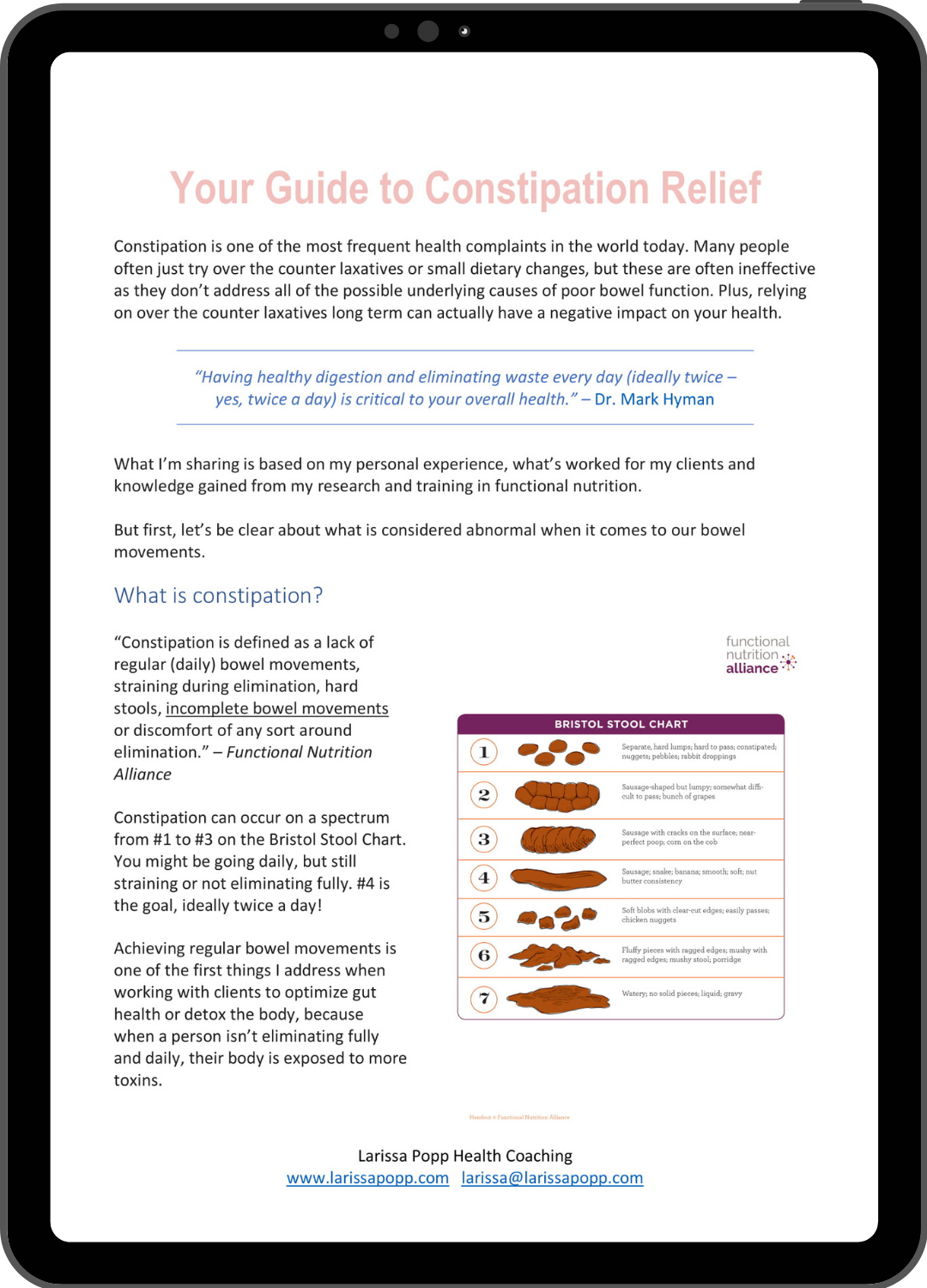I recently finished the book “Food: What the Heck Should I Eat” by Dr. Mark Hyman and there were so many great nuggets of information I want to share related to common misunderstandings and confusion that people often have around what to eat. As sugar is a big culprit when it comes to low energy, weight gain, and disease, I want to share a few of the most common misunderstandings related to sugar and sweeteners. I’ll also share a list of the healthiest options for added sugar, and what to avoid or minimize in your diet.
6 Common Misunderstanding Set Straight:
- Sugar is not just empty calories; it causes heart disease, diabetes, cancer and more. “[Sugar] doesn’t just make you fat, it makes you sick, even if you don’t gain weight.” – Dr. Mark Hyman
- It is not saturated fat from butter and meat that causes heart disease, sugar is in fact the leading cause of heart disease.
- High fructose corn syrup is not the same as sugar, and is still an ingredient in many processed foods and beverages. HFCS is an industrial product that is metabolized differently and it does more harm than sugar, including damage to the gut and liver. So, be sure to check labels as it is not just included in packaged sweets and popsicles, but also added to many condiments, sauces and beverages, such as Heinz ketchup and Corona. The good news is that there are healthier alternatives, such as “Simply Heinz ketchup” or even better, try organic ketchup – such as the one from Thrive market).
- Agave syrup is not a healthy alternative to high fructose corn syrup and sugar. It is pure fructose, which is worse than glucose and can lead to fatty liver, diabetes, inflammation, and create dangerous types of cholesterol. It’s better to use pure maple syrup or honey.
- We do not need to consume sugar to fuel our brain and give us energy. Consuming too much added sugar actually leads to brain fog and energy slumps, whereas the sugar we get from eating fruits, vegetables, and other whole foods allows for more stable energy. And what many people don’t know is that fat can also provide energy to our brain, and our brain actually runs better on fats, such as MCT oil from coconut. Try adding MCT oil to your coffee or tea to fuel your brain for the work day.
- Replacing sugary drinks with diet versions can actually be worse for you. Artificial sweeteners will cause you to eat more than you would if you just consumed sugar, leading to weight gain. They can also alter your gut flora, which will promote obesity, type 2 diabetes, and other types of disease and gastrointestinal problems, as well as fatigue.
So, you might be wondering: what are the best kinds of sugar and sweeteners?
First of all, before I talk about what are the best kinds of sweeteners, know that you really do want to reduce your consumption of sugar as much as possible (even if it is 100% natural and unrefined). The more fruits and vegetables you add to your diet, the less sugar cravings you will have. On the contrary, the more sugar you consume, the more you will crave sugar and sweets. Doing a short detox protocol is a great way to reset your taste buds and get rid of your sugar cravings.
However, even once your reset your taste buds and reduce your sugar cravings, realistically, there are always going to be times when you want to indulge and have something sweet. While fresh berries with a square of dark chocolate, melted, would be an ideal dessert, sometimes you want to indulge in something more.
Below is a list of the healthiest options for sweeteners, according to Dr. Mark Hyman (which should be used sparingly to complement a whole food plant-rich diet):
- Fresh pureed fruit
- Molasses
- Organic palm sugar
- Date sugar
- Coconut sugar
- Monk fruit
- Organic maple syrup
- Honey
- Stevia (sparingly, and only brands certified by the Rainforest Alliance) — although, I don’t recommend this one; I’ve tasted many different brands and not found one that tastes good — but some people say they like it.
- Erythritol (also sparingly; new data suggests it causes weight gain)
And here’s what to avoid:
- Artificial sweeteners of all kinds (such as those found in Nutrasweet, Splenda, Sweet-in-low, and Equal)
- Sugary beverages
- High fructose corn syrup, or any ingredient with the word syrup in its name (except for pure organic maple syrup)
- Refined sugar, evaporated cane juice, and brown sugar
- Packaged foods containing added sugars or sweeteners, such as yoghurt, tomato sauce, bread, ketchup, candy, soups, breakfast cereals, salad dressing, etc. – check the labels! If it has a really long ingredient list or contains things with the suffix “ose” that is a sign that there is sugar hiding in it. While you can find many healthier store-bought options if you pay attention to labels, there are many easy recipes for making versions of your favorite packed foods such as pasta sauce and salad dressing, at home. For example, I recommend purchasing a salad mixer bottle which recipes right on the bottle for easy homemade salad dressing – which means you’ll also be cutting out soybean and other unhealthy processed oils. And did you know that fat-free yogurt is actually worse for you because they just add more sugar to make it taste good? I recommend buying plan unsweetened yogurt and adding fresh fruit and/or honey. You can easily puree some fruit with a little added honey and keep it in the fridge or freezer to easily add to your yogurt.
Note: for those with insulin resistance, diabetes, cancer, or an autoimmune disease, it’s best to completely avoid or significantly reduce all added sugar and sweeteners.
Got questions? Post a comment!


